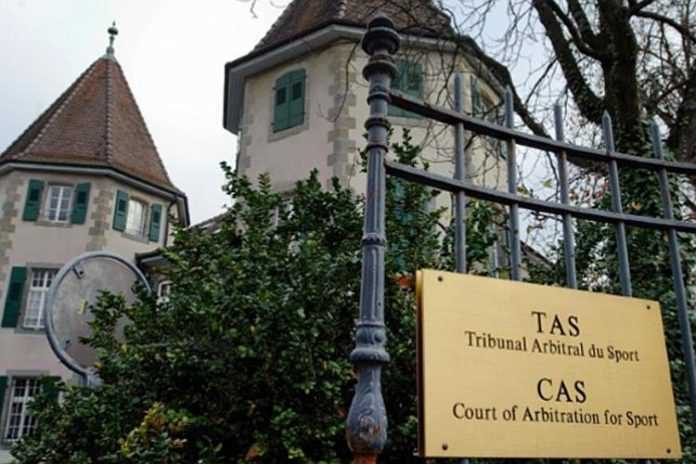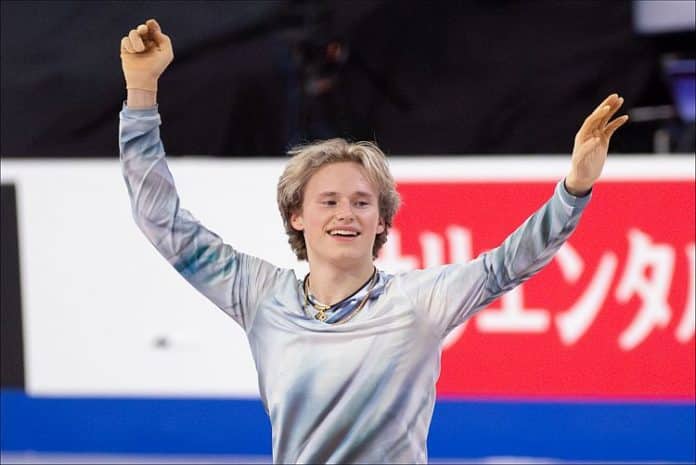★ The Sports Examiner: Chronicling the key competitive, economic and political forces shaping elite sport and the Olympic Movement.★
★ To get the daily Sports Examiner Recap by e-mail: sign up here! ★
≡ NO 2026 RUSSIAN LIFELINE YET ≡
“The Panel considered that the overall exclusion of Russian athletes was not a proportionate measure to achieve the only purpose sought by FIL (i.e. preserve safe racing conditions), since additional measures could be found to conciliate safety with the participation of Russian athletes.
“The Panel ruled that the exclusion of RLF athletes from FIL competitions is maintained, but the prohibition of Russian athletes who satisfy the criteria of AINs to compete is set aside. Consequently, the appeal was partially upheld.
“The request by the six athletes to immediately participate in international events was dismissed.”
That’s from the summary of two decisions announced by the Court of Arbitration for Sport on Friday in cases brought by the Russian Luge Federation (RLF) and six Russian lugers against the Federation Internationale de Luge (FIL), trying to force their way back into international competitions.
They lost, but the Russian federation won a smaller, possible victory. The decision, not yet published in full, could have an impact far wider than the 2026 Olympic Winter Games in Milan Cortina (ITA):
● In June 2025, the FIL Congress extended its ban on Russian athletes from international competitions, “citing risks to the safety of competitions.”
● In July, six Russian athletes and the Russian Luge Federation filed an appeal with the Court of Arbitration, asking for the ban to be overturned and for Russian athletes to be immediately reinstated.
● In the October hearing, the FIL said the ban was for safety reasons and not targeted at Russians over the invasion of Ukraine.
As noted above, the Court of Arbitration for Sport panel came back – once again – to one of its key concepts, of “proportionality.” Is the action of the federation merited as is, or are there lesser measures that it could have taken to still allow Russian athletes to compete?
The panel’s answer was that the luge federation could have and should allow Russians to compete in its competitions if they follow the “International Neutral Athlete” (AIN) program installed by the International Olympic Committee. Successfully implemented for the Paris 2024 Olympic Games, the IOC set up strict “neutrality” criteria and had a three-person panel in place to review all athletes proposed by the National Olympic Committees of Russia and Belarus for the Paris 2024 Games.
All team entries were prohibited since they would need to be identified as “Russia” or “Belarus.”
But this holding settled nothing for the Russians:
(1) The request by the Russian athletes to compete immediately and be able to earn FIL World Cup points in a quest to be able to qualify for Milan Cortina 2026 was denied. Per the panel’s formula, only Russian athletes who are shown to be “neutral” are required to be allowed to compete.
(2) The FIL has no “AIN” criteria or a panel to consider applications. If the FIL decides not to appeal the finding to the Swiss Federal Tribunal – which would take more time – it would still have to come up with its own “AIN” program from scratch.
(3) Further, another case, filed by Russian speed skater Daria Kachanova, a two-time Worlds team-event medalist in 2019 and 2020, challenged a finding by the International Skating Union that she was not a neutral in view of her “affiliation with CSKA Moscow, a sports club controlled by the Ministry of Defence of Russia.” A majority of the panel agreed with the decision by the ISU and Kachanova’s appeal was dismissed.
So, the Russians won a procedural victory for “neutral” athletes to compete, in line with the allowances made by the International Skating Union, which has a very limited qualification path for Russian and Belarusians in individual events.
But no ability to compete. And whether any Russian luge athletes will be able to compete in a FIL competition to try and quality for the Milan Cortina 2026 Winter Games is an open question.
On 21 October, the International Ski & Snowboard Federation (FIS) decided not to allow Russian or Belarusian reinstatement and decided not to implement a “neutral athlete” program. The Russian, of course, are appealing to the Court of Arbitration for Sport, but there is no guarantee that a different panel will use the FIL case as a precedent, or find a different approach.
In a parallel case, decided on 26 September, the European Table Tennis Union ban on Russian and Belarusian participation in its events was overturned in part because the ETTU’s actions were not “proportionate” and its own rules and regulations do not allow for such a ban as imposed. On proportionality, the ETTU case panel wrote:
“[W]hen the issue of proportionality is considered, there is no evidence of any discussion or consideration by the Respondent of steps that might have been taken that were short of a complete ban on Russian participation in ETTU events. Was it feasible to hold ‘closed door’ events, without any public participation? Was it feasible to play matches on neutral grounds / in neutral territories? Would either of those things have alleviated the risk to safety?”
¶
The CAS holdings in the FIL and ETTU cases may also have an impact on the continuing appeal by the Israel Gymnastics Federation and its six gymnasts against the Federation Internationale de Gymnastique (FIG) for its acquiescence when the Indonesian government refused to allow the Israeli team into the country for the 2025 FIG World Artistic Championships.
Did the FIG do all it could, especially when its own statutes require it to cancel or move events when such discrimination occurs?
This appeal, as noted by the CAS announcement, is continuing and the FIL and ETTU cases will certainly have an impact.
The other impact of the FIL and ETTU cases will be – as the ISU has already done – a thorough examination by International Federations and regional bodies on what their Executive Boards can and cannot do according to their own rules. The ISU prepped for this and was ready when the question of Russian and Belarusian participation was raised at the Court of Arbitration for Sport.
Others were not, and are not, as well prepared and as the Israeli situation in gymnastics shows, is not only about Russia’s continuing invasion of Ukraine.
¶
★ Receive our exclusive, weekday TSX Recap by e-mail by clicking here.
★ Sign up a friend to receive the TSX Recap by clicking here.
★ Please consider a donation here to keep this site going.
For our updated, 850-event International Sports Calendar for 2025, 2026 and beyond, by date and by sport, click here!






















